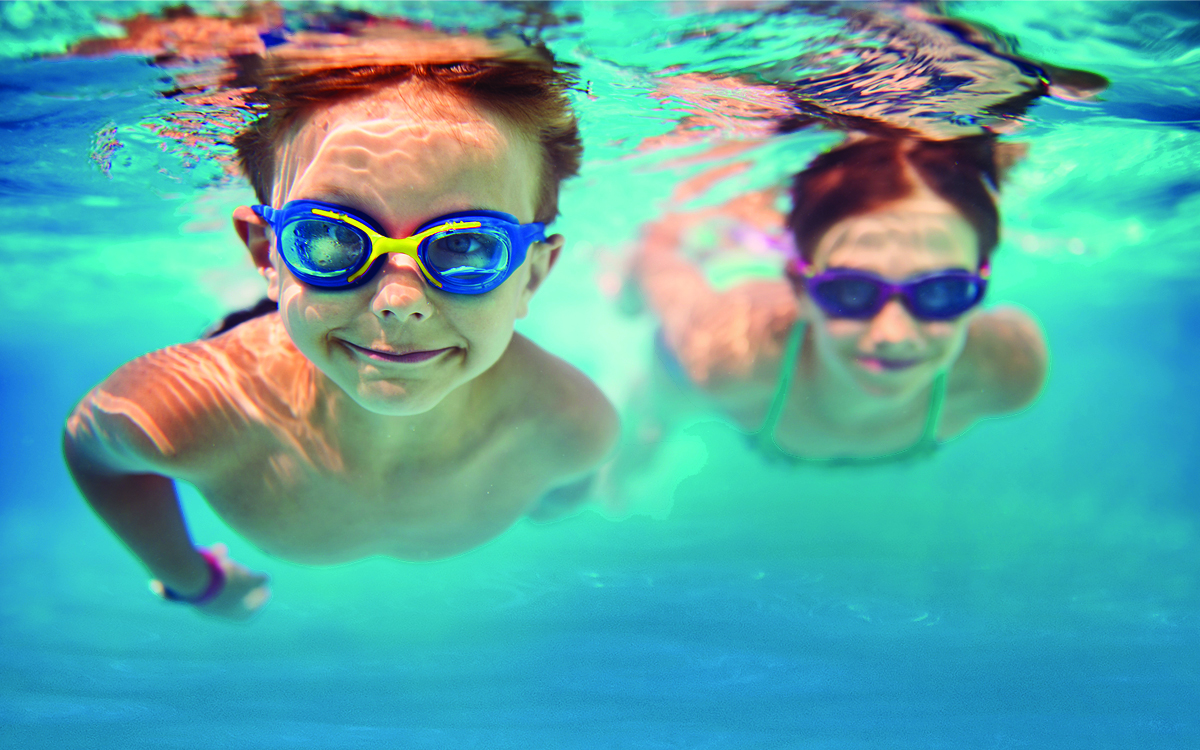
By Scott Rutherford
t’s that time of year again – hot as blazes with kids who couldn’t wait for summer vacation to start already saying they don’t have anything to do. If you’re like most parents, at some point you’re going to take the kids out to swim, whether it’s in the pool, the lake, or wherever your favorite swimming hole happens to be. And when you do, you’re going to want to keep them safe.
It’s important that an adult stays within a close distance from which they can safely react while kids swim – preferably in the water with them. This is especially true when the kids are younger and just learning to swim, but even experienced swimmers should have someone watching them.
Most of us know at least a few of the basics of water safety. We know to tell our kids not to run around the pool, not to dive into shallow water, and plenty of other useful tips. It’s important to remember that things that are obvious to us may not be as obvious to our young children. The best time to go over the rules is before the kids are near the water.
If you’re like most of us, though, you probably grew up with a few safety tips that aren’t exactly accurate. In some cases, there’s no real harm. With others, there can be. For example, most of us learned that we should wait at least a half hour after eating before we go swimming. Dr. Mark Messick of Duke Primary Care said, as reported by Duke Health, “The common belief that the blood going to your digestive tract after eating steals the blood needed to keep your arms and legs pumping during swimming is unfounded.”
Another – and potentially more dangerous – incorrect safety tip we may have heard growing up is that we should hold our breath when swimming under water. Virginia Bullock, owner of Jump! Swim Schools Shreveport where they teach swimming to students from three months old through adults, explains that holding your breath too long can actually cause you to lose consciousness and that it’s better to teach “proper breath control through blowing bubbles.”
Of course, it’s important to teach kids water safety and the younger the better. Jump! Swim Schools’ Facebook page regularly has fantastic tips and advice for water safety, including some things – like blowing bubbles instead of holding your breath – which even those of us who regularly swim may not have been aware of.

